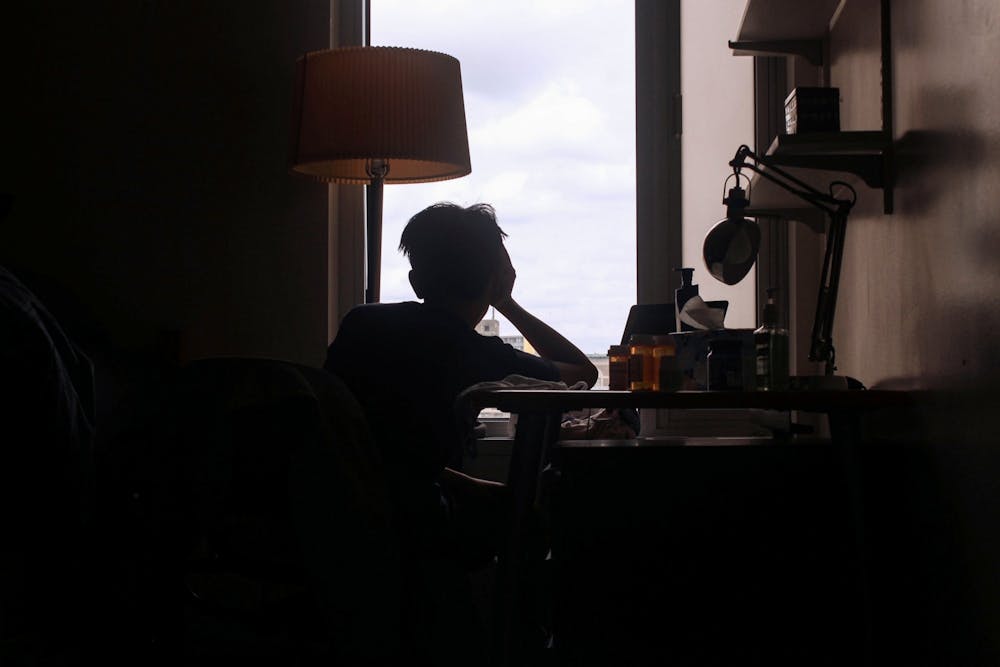
The chorus of coughs in lecture halls points to the reality of Penn right now: People are sick with colds, allergies, and COVID-19. In light of the fact that COVID-19 is still a fact of life, and many of the new symptoms of the Delta variant mimic those of the common cold, students are forced to miss classes in the hopes of avoiding spreading the disease. With the inconsistent attendance of students, professors need to create useful resources for students missing classes, ensuring that their education and ability to succeed are not impeded by sickness.
Currently, Penn does not require that professors record their lectures. While students are already struggling with the anxiety of having to quarantine, the last concern on their minds should be how behind in classes they are going to feel or if they missed something important said in class. While it may not be in every professor’s best interest to record and post all of their lectures, because their classes are not conducive to being recorded for technical reasons, there are some alternative strategies that ensure an easy transition back to the classroom for those affected by sickness.
While smaller, discussion-based classes offer a more intimate, personalized class experience that is interactive when in person, absences can greatly affect a student’s ability to succeed. What is discussed in one session may be a topic that runs into the next class’ focus, meaning that an absence could impede a student’s ability to stay up to date with lessons and be an active participant. Professors cannot rely on the friendships of students, believing that they fill others in on what they miss. The reality is that sometimes students do not know their classmates. Understandably, it may be difficult for professors to record these types of classes. Microphones may not pick up on what every student is saying, posing a technological barrier to recording. This, however, is not an excuse to fail to provide adequate resources for students forced to miss class due to COVID-19 or an illness presenting as COVID-19. In these situations, professors should feel inclined to provide outlines of important talking points and insightful comments brought up within discussions.
In larger, lecture-based classes, however, there is no excuse for not recording lectures, as it is primarily just the professor speaking, and many are familiar with recording technologies after over a year of online instruction. I understand that some professors are wary of recording every lecture and posting it, under the assumption that students will be less inclined to physically attend class, opting to watch the lectures on their own time. An alternative to this, however, would be to record the lectures but only upload them or send them to students who reach out after having missed a class. This would allow these students to remain caught-up and avoid the stress associated with teaching themselves the material while they are already sick.
Some professors have offered, as a solution, access to class recordings from previous virtual semesters. This, however, puts students at a disadvantage. Often, when professors provide this option, it comes with an asterisk — that the lectures will be different, and the current semester’s lectures may include new information. Missing one piece of information from one year’s lectures to the next could be the difference between getting a multiple choice question right or wrong. If a student is following Penn’s rules by getting tested and staying home from class when they do not feel well, they should not be penalized.
Ultimately, the best solution to the obstacle posed by COVID-19 in the classroom is to have professors record their large lectures and provide detailed summaries for small discussion-based courses or seminars. While it may be a small inconvenience for professors, students should not be put at a disadvantage for avoiding class when they are sick or missing class because they are COVID-19 positive. In a new age of uncertainty and sickness, one’s educational resources should be certain.
ISABELLA GLASSMAN is a College junior studying philosophy, politics, and economics from Suffern, N.Y. Her email is iglass@sas.upenn.edu.
The Daily Pennsylvanian is an independent, student-run newspaper. Please consider making a donation to support the coverage that shapes the University. Your generosity ensures a future of strong journalism at Penn.
Donate







